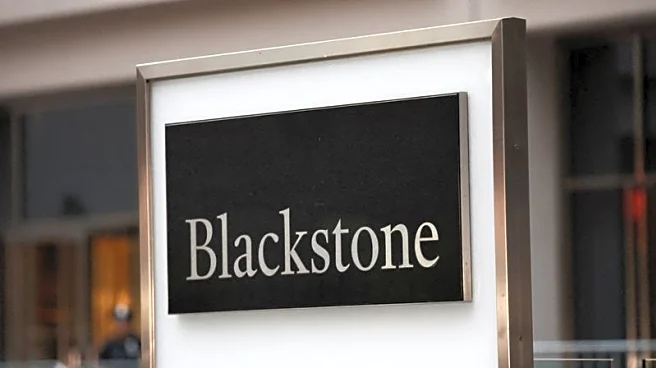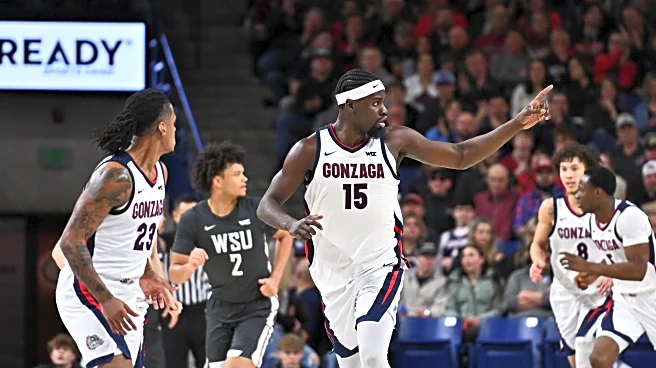(Reuters) -Blackstone, the world's largest alternative asset manager, reported a 48% rise in third-quarter profit on Thursday, driven by strong gains in its credit and private equity businesses.
Distributable
earnings, or cash that can be used to pay dividends to shareholders, jumped to $1.89 billion, or $1.52 per share, in the three months ended September 30, compared with $1.28 billion, or $1.01 per share, a year earlier.
Transactions have been done thick and fast in recent months after volatility earlier in the year following U.S. President Donald Trump's announcement of tariffs on imports as corporate boardrooms adapt to persistent uncertainty.
Asset sales in the credit and insurance arm were $13 billion in the quarter, while Blackstone also sold $9.3 billion of private equity assets.
Among large deals in the quarter, Blackstone's credit and insurance business led a $7 billion investment in a liquefied natural gas facility owned by Sempra in Texas.
Blackstone deployed $26.6 billion of capital in the quarter and has $188.1 billion in dry powder.
Keeping up momentum in the fourth quarter, Blackstone has teamed up with private equity peer TPG to take medical diagnostics firm Hologic private in a deal valued at up to $18.3 billion.
STRONG FUNDRAISING
Blackstone's credit and insurance arm accounted for nearly two-thirds of the $54.2 billion in inflows in the quarter, lifting assets under management to a record $1.24 trillion.
The unit, the company's biggest business by assets, is a key driver of the firm's growing influence in private credit.
The private equity arm saw segment distributable earnings more than double to $871.5 million in the quarter.
Management's commentary on credit markets will be closely watched, with analysts expecting the industry to temper concerns on asset quality.
Alternative asset managers' stocks have weakened in recent weeks as the bankruptcies of auto parts retailer First Brands and subprime lender Tricolor stoked investor concerns on credit risks.
Blackstone shares have slipped 6% this year as of last close, underperforming the benchmark S&P 500 index.
(Reporting by Isla Binnie in New York and Arasu Kannagi Basil in Bengaluru; Editing by Sriraj Kalluvila)












